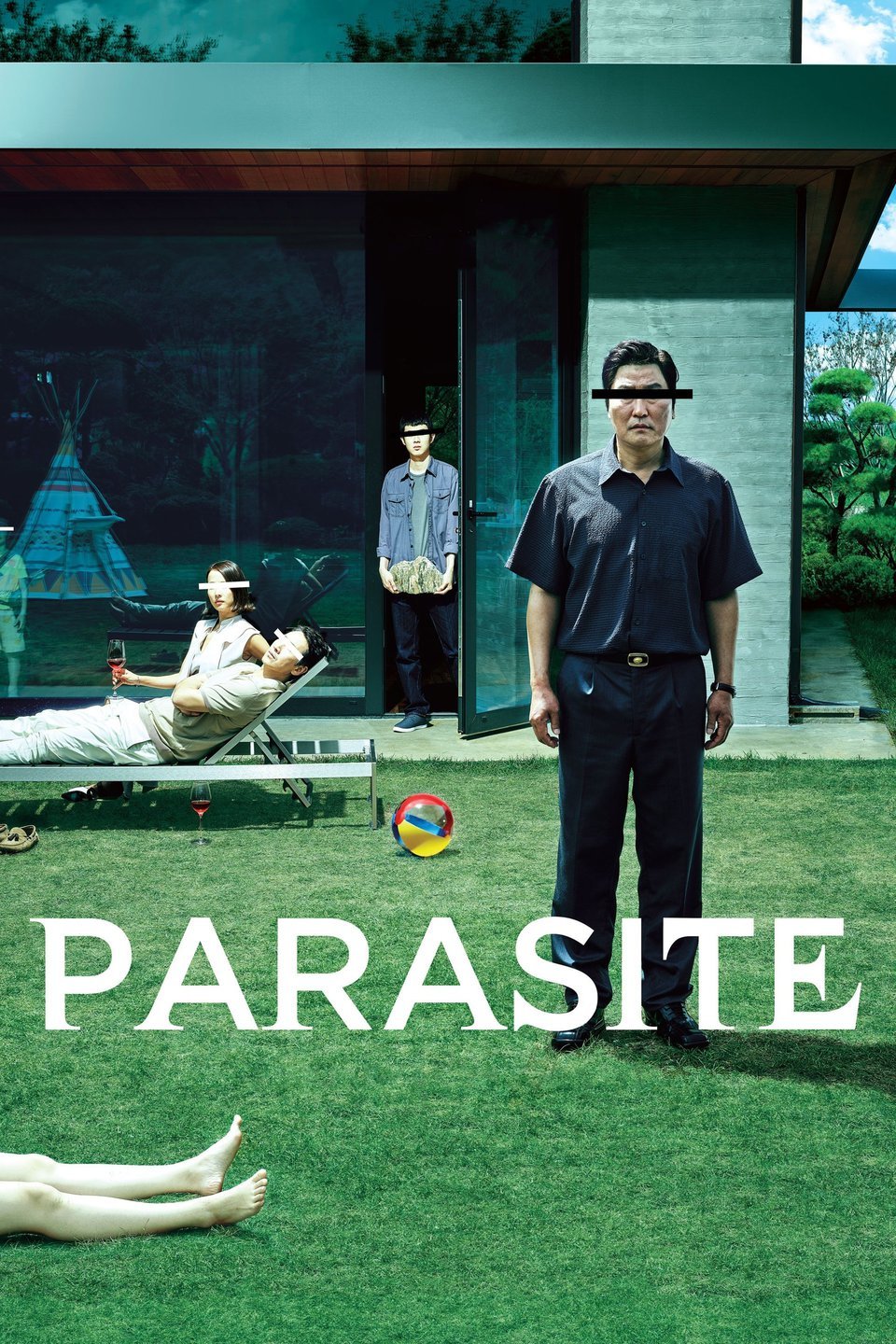
Parasite, a Korean film directed by Joon-Ho Bong, depicts the life of an impoverished Korean family and its unethical efforts to climb the socio-economic ladder. The drama begins when Ki-Woo, the son of the Kim family, is hired to teach English to the Park family’s daughter. Ki-Woo is not qualified whatsoever to teach as he never attended college, but he is hired anyways due to an excellent recommendation by his friend, who was the previous English teacher. After Ki-Woo’s first lesson, he recommends his own sister to be an art teacher for the Park family’s son. This pattern of recommendation is repeated discreetly until the entirety of the Kim family is employed by the rich Park family. Throughout the film, the employed family discreetly works for the wealthy household during the day, while enjoying their unethically earned salary at night.
This film exaggerates the struggles of an impoverished family in Korea, but its point is not to create an accurate depiction. Rather, it tries to highlight a deep and ongoing chasm between the working and wealthy class. The film not only depicts the marginalization of the working class, but the loss of their dignity and voice to change the community around them. For example, the Park family commands sets strong and excessive boundaries when the workers don’t perform their duties properly. The film further highlights the chasm by juxtaposing vocations that are of different social classes. For instance, Ki-Taek, the head of the Kim family, is constantly seen driving Mr. Park, the head of the Park family and CEO of his own successful company. While Mr. Park seems to respect and admire Ki-Taek on the outside, he secretly talks about Ki-Taek’s disgusting scent, describing it as a “special subway smell”.
After watching this film, I found a new interest in the division of classes in South Korea. After further research, I learned that more than 100,000 taxi drivers and chauffeurs are considered laborers rather than contract workers, meaning that their employment status can be hired and terminated at the will of companies that manage these drivers. Drivers are also unable to unionize, preventing them from objecting to any unfair rules passed by their companies. To make matters worse, these drivers are paid less than $1,750 even after being on-call for 24 hours. It’s unfortunate that individuals with low-paying jobs are unable to change careers due to South Korea’s rigid and ineffective education and labor system.
I’m very curious about the steps that the South Korean government is taking to relieve the pressure from the working-class. In 2018, 60 percent of the 100,000 drivers in Korea protested against the rise of ridesharing apps in South Korea. Many of the drivers expressed extreme discontent because of the ridesharing apps’ abilities to eliminate the taxi industry entirely. The government responded by banning ridesharing apps and forced app developers to connect their apps to pre-existing yellow cabs. More research is necessary, but I think South Korea is taking the right steps to ensure the survival of an industry that mostly employs the impoverished working class.

Comments
I watched this movie before and I was so shocked. I had many confusions when I was watching the movie, but after reading your post and learning the background, it became clearer. And I always think Korean movies did a good job of demonstrating the social problems.
I saw this movie a few weeks ago and it is one of my favorite movies in 2019. I am so happy that you choose this movie as the topic of your cultural post. It reflects many severe social problems caused by the large chasm between the poor and the wealth in Korean society nowadays. Everyone seems to be the victim and the murder. After all, we should never be the servent of money.
I love this culture post and your analysis. This movie was such a great psychological movie, where the more you think about it and recall what happened, the more you realize the depth and layer this movie has to offer. I really enjoyed this movie, and it interests me the lengths people will go for money and economic status, but it also shows how much influence money has on us.
I really like this movie and your analysis. And I agree that the exaggeration in this case actually helped to expose the problem. The income gap, unequal distribution of wealth and personal achievement tied to the family are problems exist in many countries. And this Korean film did particularly well in demonstrating them in a satirical way.
One of the reason that I like Korean movies is that those Korean directors are good at exposing social problems by artistic means. And there are many Korean movies which are about those serious social problems in South Korea, including chasm between the poor and wealthy class, the status of women, and corruption in government. Many of them are adapted from real events. This is not quite common in other counties' filming industry.
The cover art for this film is very eye-catching in and of itself and makes me want to go watch it! It is interesting to see how film is used in other countries to highlight societal problems or social inequities. Your analysis and extra research into the problem definitely increased my understanding of the problem in South Korea.